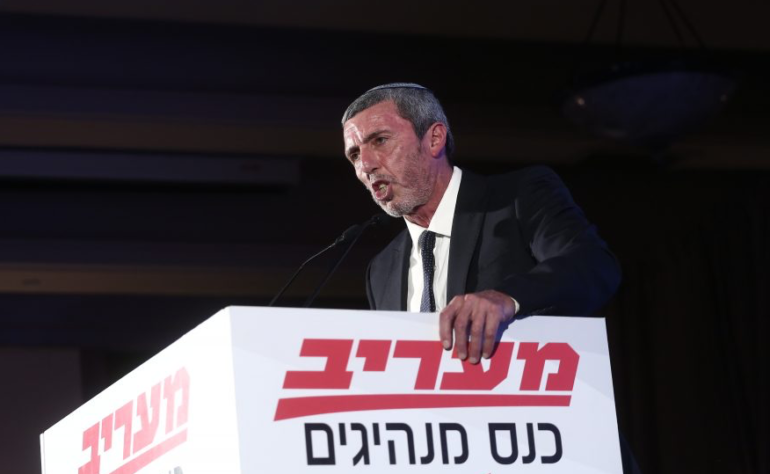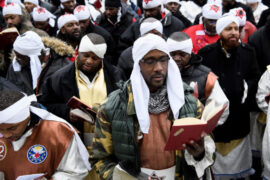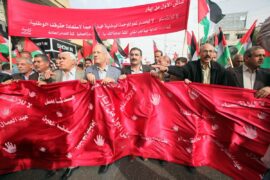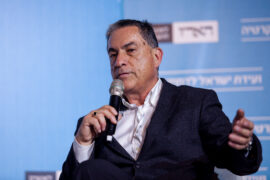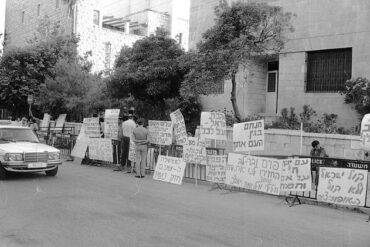Education Minister Rabbi Rafi Peretz (Bayit Yehudi) attacked what he called the conflation of Ḥanukah and Christmas in Israel.
Speaking at a Maariv conference on Wednesday, the education minister said that he had seen an SMS from the national inspector for kindergartens in which she had said that because Ḥanukah and the Christmas season coincided this year, she was wishing people “a happy holiday of holidays” instead of “Happy Ḥanukah.”
“Of late I feel that we are not celebrating Ḥanukah but Ḥanu-Christmas, or a holiday of holidays, as I learned today,” said Rafi Peretz, adding that he is in favor of multiculturalism but that “multiculturalism needs to know to preserve your culture and not turn it into folklore.”
“This phenomenon is a symptom of a broader problem,” he said. “I am the education minister of all Israeli children, Jews, Arabs, Christians, and I respect everyone and give space to all, but I am not prepared to compromise on our identity, I will not compromise on a Jewish and democratic state.”
“The [Ḥanukah] miracle of the oil is our identity. The victory of the Hasmoneans is our identity. An identity that differentiates us from the Hellenistic culture of those times. Ḥanukah and Independence Day are our holidays of Jewish sovereignty, national days of identity.”
Israeli society’s difficult balance between particularism and universalism is often highlighted around Ḥanukah, which celebrates the victory of a radical tribalist minority over a westernized Judean ruling class and the forces of empire.
The festival very much lionizes guerrilla fighters who championed Jewish culture and identity in resistance to Hellenist cultural imperialism.
Rabbi Rafi Peretz is correct to understand the creeping inclusion of foreign holidays into Israeli society not as a manifestation of tolerance towards or inclusion of the cultures of minority populations but rather as the imposition of powerful foreign cultural influences on an ancient native civilization in desperate need of rediscovering its identity after several centuries of colonization in exile.
In truth, the very notion that Israel should be inclusive of Western holidays is itself a symptom of complicated national identity issues.
Making space for the Other in Israeli society through elevating Christian festivals to the public sphere won’t help Israel balance values of particularism and universalism. The only way to truly strike this balance would be through creating structures of inclusion for non-Jews that in their essence deeply express Israel’s national identity.

